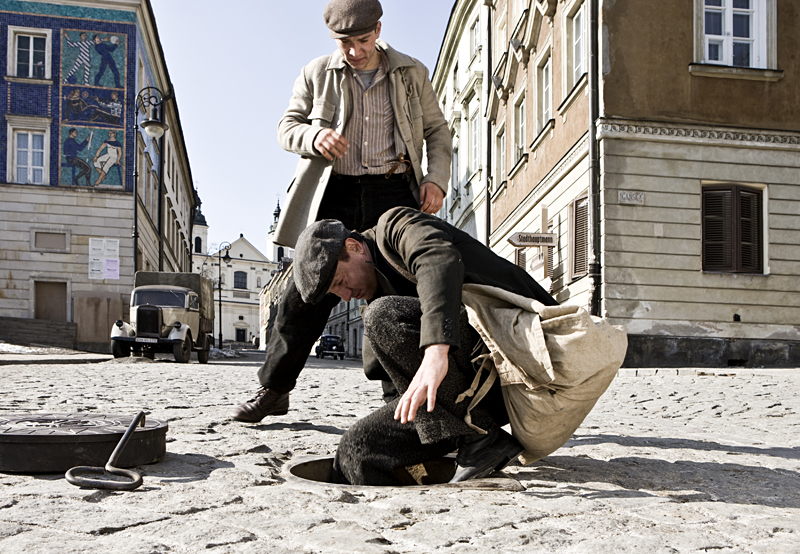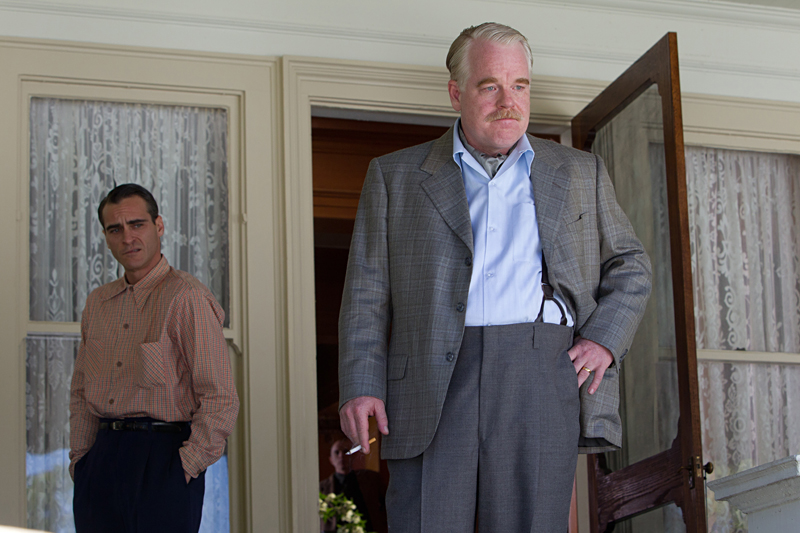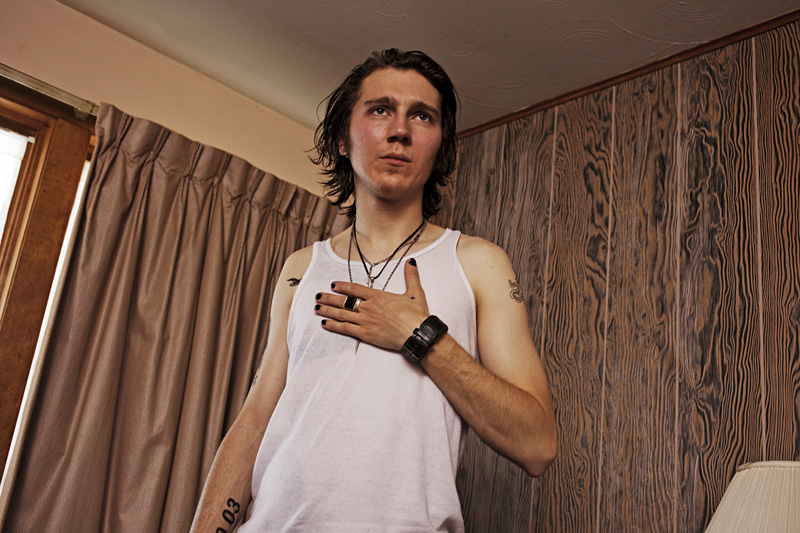Holocaust culture has proven to be essentially infinite—almost 70 years after the end of World War II, untold stories of decimation and survival are still hitting the mainstream. Agnieszka Holland’s new film opens a scab perhaps only familiar to Holocaust Museum devotees—the tale of a handful of Jewish families who lived in the Lviv sewers for more than a year during the Nazi liquidation, aided by a reluctant Polish crook/sewer worker named Leopold Socha. The film begins with Socha (Robert Wieckiewicz) looting an evacuated house, getting chased out by a young brownshirt, and passing a crowd of naked women being herded through the forest. Patiently, we watch the city’s occupation clamp down until an entire small community of Jews starts digging through the floor and into the tunnels underneath, where they happen onto Socha. Always scheming, Socha offers to guide them to a safe corner in the sewer system and provide them with food at the cost of essentially every karbovanets in their pockets. Eventually the money runs out, but Socha keeps returning because, as he says, they’re “my Jews.” Holland does skirt the ethical entrapment of Schindler’s List (over-lionizing the Aryan rescuer) by contemplating the details of the sufferers, particularly the scalding fate of a newborn baby whose single cry could destroy everyone. But there is always the inescapable fact that every Holocaust movie, however hair-raising, essentially thrums the same self-sacrifice versus self-preservation chord. It’s not fair, but there it is: We’ve been here before.
In Darkness: Yet Another Holocaust Drama








